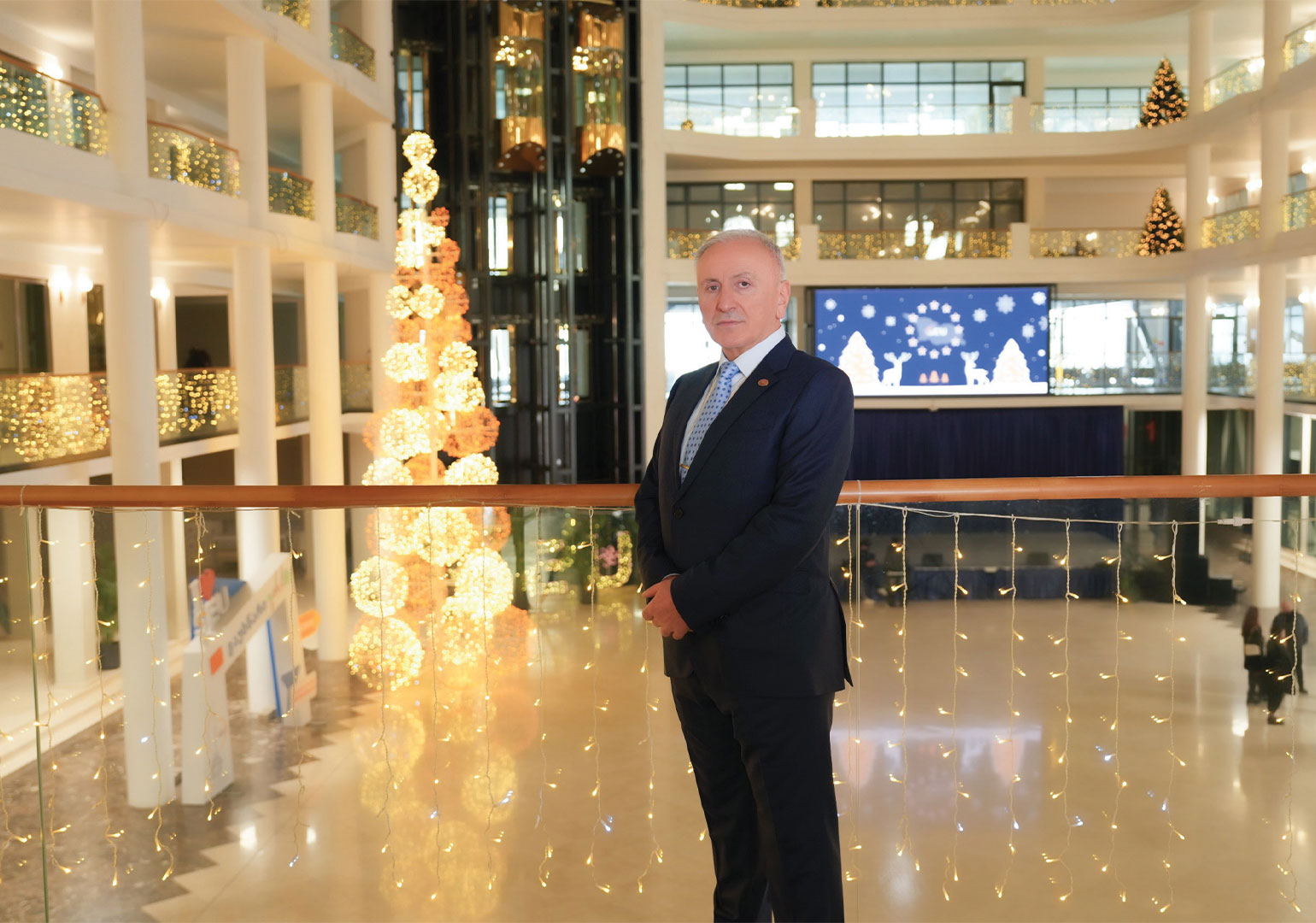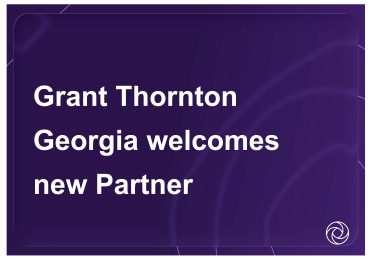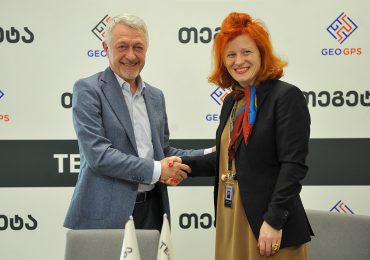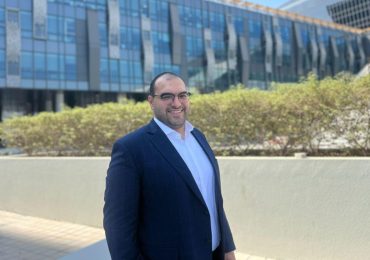Starting educational activity in 2001 with three undergraduate programs in a rented building, the National University of Georgia, the founder and rector of SEU, Gia Kavtelishvili, turned SEU into a leading private educational institution in the region with a modern campus, a success story of more than 41,000 Georgian and international graduates, and an ambitious team of professionals.
Mr. Gia, let’s start from the beginning. Why did you decide to invest in higher education?
I was always attracted to the field of education. When I was in school, I always tried to share my knowledge with my peers. I often helped my friends to be better prepared in exact and natural sciences. It also continued during my studies at the university. Later, it was just this feature that led me to the decision and motivation to establish a university where learning, teaching and research are supported and where everyone is given the opportunity to realize their full potential.
How has this goal transformed over the years?
Obviously, in the wake of the current global challenges, the mission of the university needs constant rethinking and reinterpretation. However, we had a solid vision from the beginning, which implies adherence to the standards and principles of the common European educational space based on national values, the continuous development of a high-quality, innovative and student-oriented environment. I think we have one of the best campuses in Europe. The management of the university itself has practically moved to European standards in recent years. This transformation was not an easy process, however today the SEU structure and decision-making process is decentralized, democratic and efficient. Over the years, the SEU team has grown significantly and today includes recognized professionals in their fields – both local and foreign. It was with their direct involvement that we updated the personnel management policy, where the mechanisms promoting the professional development and motivation of the academic and administrative personnel were highlighted more. We believe that SEU is one of the most modern universities in the region, which is reflected in many aspects, such as a modern campus, innovative educational programs, double degree diplomas or other projects aimed at creating new and valuable knowledge and transferring it to students.
What were the main challenges you faced along the way and what are the main results you are proud of today?
In 2001, when I founded SEU, we had only three programs at the university. We did not have our own space 22 years ago. Then there was a lot of hard work, which gave us exactly the result we had hoped for. Today, SEU is the most sought-after and development-oriented private university in Georgia – with modern, high-quality Georgian-English language educational programs, one of the best campuses in Europe and a team of professionals. I am very pleased that SEU is named as a prestigious workplace for local and international lecturers, but I am especially proud of the fact that since our foundation we have gained the trust of more than 41,000 Georgian and international students. It is also an important achievement for us that we own the best clinic in Georgia, which is equipped with ultra-modern medical equipment and combines local and international doctors. American Hospital Tbilisi AHT (American Hospital Tbilisi) is the affiliated clinic of our English-language medical program, where only our students do practical clinical training.
We have mentioned modern technologies several times. How does the rapid pace of technological development affect your work?
The field of technology has enormous potential to transform industries, create new opportunities, and offer solutions to complex problems. This pace of development gives rise to new professions and, accordingly, demands the latest and quite specific knowledge. As a result, we not only adapt to the technologies and introduce them into the educational and management process, but also create completely new educational programs in accordance with market requirements. In 2023, we developed the first bachelor’s program in data science and artificial intelligence in Georgia, master’s program in data science and others.
I would like to ask you about the public impact of the university, what is the third mission statement of SEU and what are the activities that you would choose?
As an educational institution, a private business, we implement lots of projects within the framework of corporate social responsibility. We feel responsible towards students, employees, the environment and society in general. During the year, we support more than 150 educational projects, but I would like to single out a few: SEU is involved in the process of converting, processing and publishing the unique audio and video archive materials in the conservatory into digital format; recently, the book La Georgia de Kvara was published and presented in Italy, sponsored by the National University of Georgia SEU. Even during the pandemic, when we switched to online learning, we provided students with more than 1 900 laptops of the latest model for free. At the same time, the “Central Online Clinic” of the Ministry of Health was operating in SEU completely free of charge, and the Covid-doctors were providing consultations to the citizens. In addition to social projects, we also carry out various activities in the ecological direction. Eco-efficiency is very important to us. That is why, exams in SEU have been already held electronically for 10 years, business document circulation is also online, which gives us the opportunity to save more than 100 000 sheets of paper during the year. Our building is also energy efficient.
We not only adhere to our social responsibility, but also try to raise the awareness of the youth in this direction. That is why we have developed a special training course “Corporate Social Responsibility” and included it in educational programs, and we hold a number of information meetings in this direction.
How would you describe the flow of students and what initiatives are you taking to ensure a diverse and inclusive environment?
From year to year, the flow of students in SEU is increasing, in 2023, according to the unified national exams, we received a record number in the history of private universities – 2362 undergraduate students. Our students have a varied and interesting student life. In addition to lectures, additional cognitive public lectures, trainings, student conferences are held daily. Students have the opportunity, based on their interests, to create student clubs or join existing ones, get involved in sports, social-cultural activities, participate in exchange programs or summer schools. The university constantly takes care of raising the level of inclusiveness, for which it uses both its own resources and external support mechanisms, opportunities for institutional cooperation. SEU is adapted to all the needs of each student and we create all the conditions so that young people can get a perfect education in a comfortable environment.
Who are your main partners and what are your tangible achievements in this direction?
Internationalization is a priority for SEU, which means cooperation with foreign higher educational institutions and scientific research institutions, membership of international associations, participation in international education exhibitions, exploitation of new markets and promotion of SEU globally. A key aspect of internationalization for SEU is the expansion and promotion of student and staff mobility through active cooperation with partner universities, be it Erasmus+, DAAD or any other bilaterally agreed format. We actively cooperate with a number of prestigious universities and associations in Europe, America and Asia. The list of partner universities is long, but the ones that come to my mind and which I would like to highlight in particular are the following universities: University of California (Berkeley), Grand Canyon University (USA), University of Coventry (England), University of Karlsruhe (Germany), St. Gallen (Switzerland), University of La Coruna (Spain), Lazarski University (Poland), Polytechnic University of Bragansk (Portugal), Bucharest State University of Economics (Romania), Yeditepe University (Turkey) and others.
I would also like to highlight EHL Hospitality Business School – the world’s leading university in the field of hospitality management, which is our partner and we jointly plan to develop bachelor’s, master’s, professional and certification programs.
As I mentioned before, we have a double degree education program in partnership with several European universities. These programs allow the student to spend the final course at a foreign university and receive diplomas from SEU and partner higher education institutions.
How do labor market demands affect your training programs?
The university systematically studies the labor market and focuses on several directions. First of all, we are interested in where and under what conditions our graduates will be able to find employment and what basic knowledge and skills they should have in order to form a successful career. The development trends of industries are also of great interest, which we actively take into account when developing training programs. At the university, we have an ambition to train young professionals not only for the local but also for the international market, so most of the academic programs are conducted in English.
What place does the development of science have in your strategy?
Our slogan is teaching through research, because teaching without research cannot be imagined. Scientific research is one of our three priorities. Special priority is given to interdisciplinary studies in the fields that are taught with us. SEU is focused on the internationalization of research. On the one hand, we are trying to support our staff for better scientific productivity on international platforms, and on the other hand, we are constantly expanding the cooperation network. We offer academic and administrative staff active involvement in research projects, support in publishing scientific articles and participation in scientific events. In SEU operates the European Integration Research Center, which carries out interdisciplinary research on European issues. Firmly protecting our responsibility, we invest special work and significant material resources in research. It is because of this that in recent years we have been distinguished by our special activity in the research direction. This is reflected in the growth of research collaborations with industry, international research partnerships and projects.
What is the action plan for the coming academic year and what is the strategic goal of SEU in general?
We have many goals. We are planning to develop joint programs with British, Swiss and German universities, to expand the artificial intelligence laboratory at the university, to integrate technology more widely in the teaching and learning process.
We are planning to open branches in the direction of both higher and general education in different countries, negotiations have already started and we will share the results with the general public in the near future.
We are planning to introduce artificial intelligence in the direction of educational and administrative management. Also, the introduction of online teaching and going to the international arena. Our goal is to further strengthen research and the international component. We are planning to deepen thoroughly cooperation with the industry with mutually beneficial results and beneficial results for society as well.
What do you think will be the future of education?
The education system as a whole and higher education as one of its most important parts, often faces various challenges. This is influenced by both environmental conditions and the processes taking place inside the system.
I think one of the most important challenges of the modern stage is the very rapid technological development. This process forces universities to adapt to changing conditions and offer relevant education to students. SEU is also one of the successful universities in this regard. For example, we can recall the period of the pandemic, when we were the first to be able to fully reorganize to the online mode, using the advanced technological solutions and technical capabilities that the university was and is equipped with. I believe that distance learning will come and artificial intelligence will be introduced in many directions.
I think we are ready for this rapidly changing environment. The relevant potential in the university is, on the one hand, an important competitive advantage and, on the other hand, an opportunity to make our services relevant to the latest requirements and oriented on future perspectives.
Finally, as the founder and rector of the university, what advice would you give to young professionals who see their future in education?
The new generation should definitely use all the opportunities that they get as students. They should work hard, be proactive and creative. With knowledge and hard work, all set goals can be achieved, and there are many examples of this. Believe me, there is no alternative to education today. I would advise them to be self-confident, to know that the way to victory is to overcome one’s own weaknesses. However, you should not be afraid of anything, especially failure, because along with victories there will be failures, along with success there will be disappointments, the main thing is to have a goal and work for that goal every day. I am deeply convinced that the new generation is the future of our country and the success of this generation is equal to the successful future of our country. I will repeat that young people should never give up. Nothing is impossible. I advise young people to be national and take care of their identity.

















